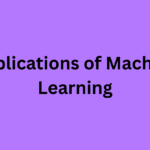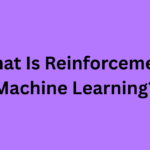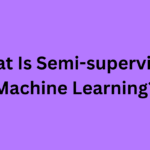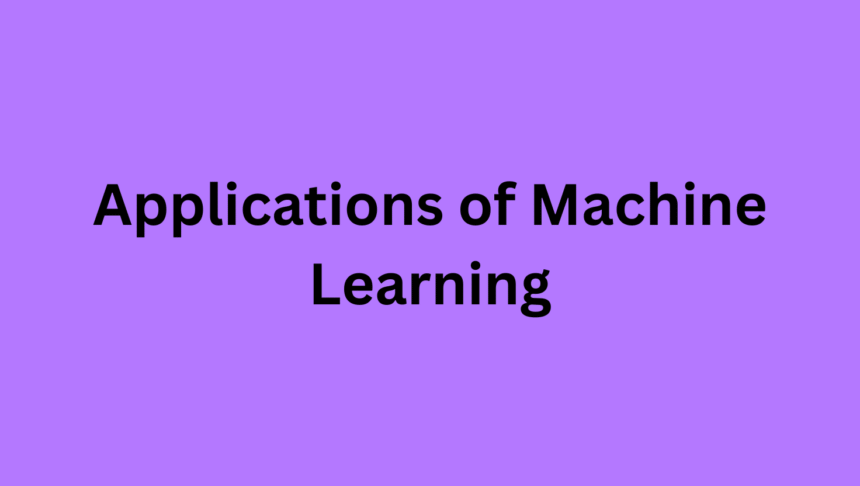Applications of Machine Learning: Machine Learning (ML) has transformative applications across diverse industries, leveraging data to enhance decision-making, automation, and efficiency. Below is a structured overview of key applications categorized by sector, with examples:
1.) Healthcare:
- Diagnostics: ML models analyze medical images (X-rays, MRIs) to detect tumors, diabetic retinopathy, etc. (e.g., Google Health’s AI for breast cancer screening).
- Personalized Medicine: Tailoring treatments using patient genetics and history (e.g., IBM Watson for Oncology).
- Drug Discovery: Accelerating compound identification (e.g., DeepMind’s AlphaFold for protein structure prediction).
2.) Finance:
- Fraud Detection: Real-time anomaly detection in transactions (e.g., PayPal, credit card companies).
- Algorithmic Trading: Predictive models for stock trends (e.g., hedge funds like Renaissance Technologies).
- Credit Scoring: Risk assessment for loans using alternative data.
3.) Retail & E-commerce:
- Recommendation Systems: Personalized product/movie suggestions (e.g., Amazon, Netflix).
- Inventory Management: Demand forecasting and dynamic pricing (e.g., Walmart’s supply chain optimization).
- Chatbots: NLP-driven customer service (e.g., H&M’s virtual assistant).
4.) Transportation:
- Autonomous Vehicles: Self-driving cars (e.g., Tesla, Waymo).
- Predictive Maintenance: Anticipating vehicle part failures.
- Route Optimization: Logistics efficiency (e.g., UPS’s ORION system).
5.) Manufacturing:
- Quality Control: Computer vision for defect detection (e.g., Siemens’ factory automation).
- Supply Chain Optimization: Reducing bottlenecks using predictive analytics.
6.) Entertainment & Media:
- Content Generation: AI-generated art/music (e.g., OpenAI DALL-E, Jukedeck).
- Gaming AI: Adaptive NPCs (e.g., DeepMind’s AlphaStar in StarCraft II).
7.) Natural Language Processing (NLP):
- Virtual Assistants: Siri, Alexa, Google Assistant.
- Translation Services: Google Translate, DeepL.
- Sentiment Analysis: Monitoring brand perception on social media.
8.) Computer Vision:
- Facial Recognition: Security systems (e.g., Apple Face ID).
- Agricultural Monitoring: Drone imagery analysis for crop health.
9.) Cybersecurity:
- Malware Detection: Identifying zero-day threats.
- Network Security: Anomaly detection in user behavior.
10.) Energy:
- Smart Grids: Optimizing electricity distribution.
- Renewable Energy: Predictive maintenance for wind turbines.
11.) Education:
- Adaptive Learning: Platforms like Khan Academy personalize content.
- Automated Grading: Feedback tools for educators.
12.) Agriculture:
- Precision Farming: Crop yield prediction using satellite data.
- Disease Detection: ML models identify plant pathogens.
13.) Marketing:
- Customer Segmentation: Targeted ads via clustering algorithms.
- Churn Prediction: Retaining users (e.g., Spotify’s retention strategies).
14.) Environmental Science:
- Climate Modeling: Predicting weather extremes (e.g., Google’s Flood Forecasting).
- Wildlife Conservation: Tracking species via camera traps.
15.) Legal & HR:
- Document Analysis: Contract review (e.g., LawGeex).
- Resume Screening: AI tools like HireVue for recruitment.
Applications of Machine Learning: (Summary)
Machine learning (ML) has revolutionized industries by enabling data-driven decision-making, automation, and predictive capabilities. In healthcare, ML models analyze medical imaging (e.g., X-rays, MRIs) for early disease detection, predict patient outcomes, and personalize treatment plans. Finance leverages ML for fraud detection, algorithmic trading, credit scoring, and risk management, enhancing accuracy and operational efficiency.
Retail and e-commerce use recommendation systems (e.g., Netflix, Amazon) to personalize user experiences, while demand forecasting optimizes inventory. In autonomous vehicles, ML processes sensor data for real-time navigation, obstacle detection, and decision-making. Natural Language Processing (NLP) powers chatbots, sentiment analysis, and language translation (e.g., Google Translate), transforming communication and customer service.
Manufacturing employs predictive maintenance to reduce equipment downtime, and computer vision ensures quality control. Cybersecurity systems detect anomalies and threats in network traffic, safeguarding digital infrastructure. In marketing, ML drives customer segmentation, ad targeting, and churn prediction.
Climate science benefits from ML in weather forecasting, climate modeling, and analyzing environmental data to combat climate change. Education platforms use adaptive learning tools to tailor content to individual student needs.
Algorithmic bias, interpretability requirements, and data privacy issues are obstacles. Nevertheless, ML’s adaptability keeps opening up new possibilities, from biotech drug discovery to smart city energy grid optimization. As technology develops, machine learning applications will grow, changing sectors and raising standards of living everywhere.
Read Also: What Is Reinforcement Machine Learning?







